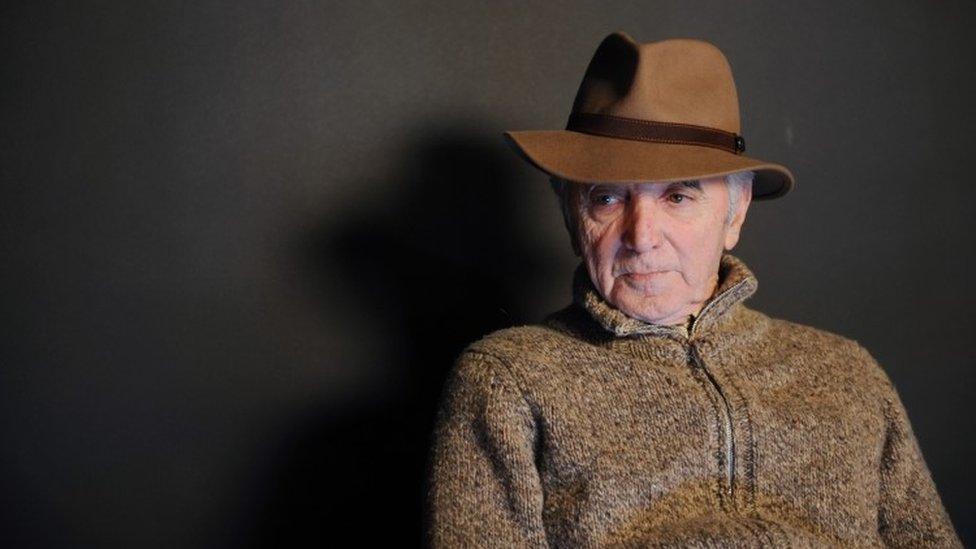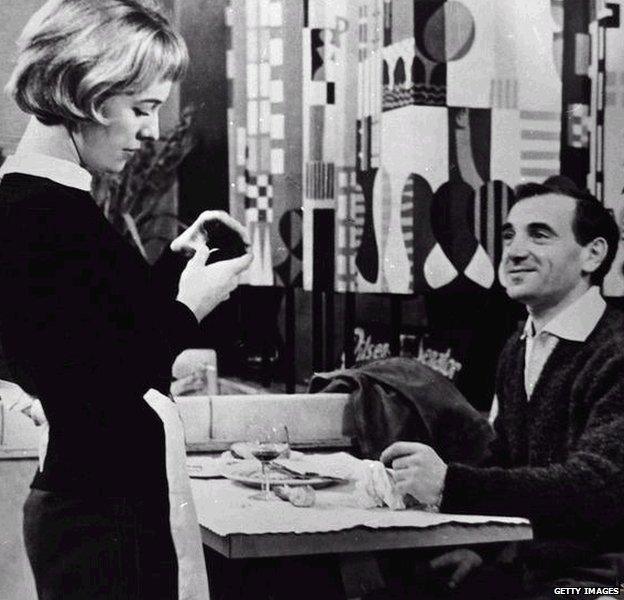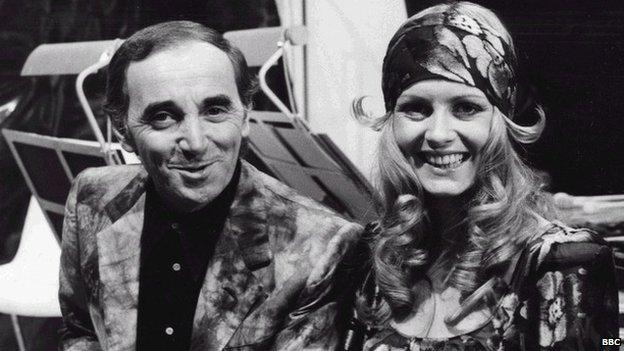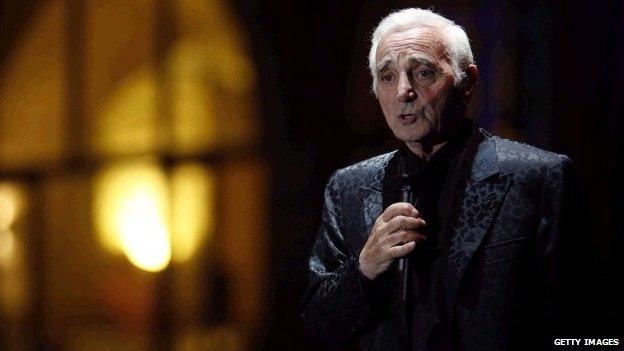Obituary: Charles Aznavour
- Published

Charles Aznavour was an unlikely heartthrob.
He stood just 5ft 3in (1.6m) tall and was almost 50 before he had his first hit in Britain.
In a career spanning 80 years, he wrote more than 1,200 songs, including the classic tearjerker She.
And he was lauded in his home country, where he was once dubbed France's Frank Sinatra.
Varenagh Aznavourian was born in Paris in May 1924, the son of Armenian immigrants who had fled from persecution in Turkey and were staying in the French capital temporarily while waiting for a US visa.
Forced by lack of money to give up school at the age of nine, he was determined to be an entertainer and by 11 he was playing child roles at the Theatre Marigny.

He had a long career as a film actor, here in Tirez Sur Le Pianiste from 1960
In 1941 he teamed up with another actor, Pierre Roche, to write songs, and in a nine-year partnership they wrote for Maurice Chevalier, Gilbert Becaud and Edith Piaf.
His big break came when Piaf, who had admired his voice, invited him to accompany her on a tour, first of France and then of the United States.
With her encouragement, Aznavour launched himself on a solo career in 1950, singing his own songs.
Multi-lingual
His stage performances were described as the epitome of French romance, but one critic wrote: "To put one's self before the public with such a voice and such a physique is pure folly."
But Aznavour's mournful love songs, delivered by his throaty tenor voice, did catch on, and in 1955 success came with the song Sur Ma Vie.
In 1965 he opened the first of his long-running one-man shows at the Olympia Music Hall in Paris, singing 30 of his own songs.

Twiggy was just one of the stars who appeared on his BBC show
His first hit in Britain was The Old-Fashioned Way, in 1973, followed by She in 1975.
His linguistic ability - he could sing in more than six languages - made him popular around the world.
His success, including worldwide sales of more than 180 million records, brought wealth, and he lived in Switzerland for many years.
Armenian earthquake
In 1977 a French court fined him about £1m ($1.3m), with a suspended one-year jail sentence, for tax evasion and currency offences.
The following year he was ordered to pay £1m in tax arrears.
Aznavour combined singing with his acting career, and appeared in more than 60 films. In 1982 he played himself as a struggling composer in the film Edith et Marcel, based on Piaf's romance with a boxer.

He was still performing in his nineties
In 1988, in response to the earthquake in Armenia, he formed his own charity to help the victims, including composing a song that featured a string of top French performers and topped the charts for more than four months.
"What is important to Armenia," he once said, "is important for us."
He took a deep interest in politics. During the 1992 French presidential elections he encouraged people to sing La Marseillaise in public to protest against the right-wing candidate Jean-Marie Le Pen, who had made it to the run-offs.
He also campaigned vigorously for an extension of copyright law to protect the work of artists, authors and composers.
Aznavour had neither a great voice nor film-star looks but he did have immense songwriting talent coupled with a mesmerising stage presence.
Along with Piaf and Chevalier he was one of France's greatest singing stars.
